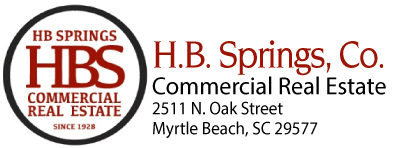When investing in commercial real estate, it will be important for you to know how to check a property’s performance. This will give you a good idea whether or not this investment is the right one for you.
It’s important to keep in mind that performance is all relative. Different factors come into play which all vary based on location, gross income, CAP rates, etc. This is why a good investor often considers multiple properties in multiple locations.
- Cash Return on Investment
Also known as the cash yield, this ratio can provide a good estimate as to what the yearly cash flow of the investment property may be. Keep in mind this doesn’t consider income taxes, reductions in loan principal, or property value changes. However, it can be used to compare various leverage scenarios.
To determine the cash return on investment simply take the net operating income and subtract the debt service. You will then take the value and divide it by the down payment.
- Net Income Return on Investment
This term is the amount of money you will be left with after all operating expenses are deducted. It’s simple. Take the property’s gross income and subtract it by your operating expenses. The resulting number is your net income return on investment.
- Total Return on Investment
Your ROI is comparable to the cash on cash return except this formula takes into consideration the reduction in a loan that occurs when payments are made.
To determine your ROI, take your net operating income and divide it by your purchase PLUS improvement costs. The answer will come out to be a percentage and is what you can expect annually. This total is always susceptible to change year by year.
- Net Operating Income
NOI is able to tell you multiple things. You can determine how much money you have left to pay a debt service or by multiplying it by the cap rate you can estimate the sales price of said property. To determine your NOI, simply deduct the amount spent on operating expenses from the gross income.
- Capitalization Ratio
Otherwise known as the CAP rate, the capitalization ratio is the ratio of the NOI to the purchase price of the property. The higher the cost of the property equals the lower the CAP rate.
- Debt Service Coverage Ratio
To determine the DSCR, take your net operating income and divide it by your purchase costs PLUS improvement costs. This number is key for lenders as they can determine whether the property will be able to pay back the loan.
- Operating Ratio
Different properties have different operating ratios. Commercial properties and triple net properties tend to have lower OR’s due to the fee’s tenants pay. The exception to this is multifamily properties whose OR varies depending on the expense to the tenants.
- Gross Rent Multiplier
The GRM compares gross income to price. Similar to a CAP rate, except the CAP rate compares net income.
To determine your GRM, take your purchase price and divide it by gross income. In terms of better numbers, you’ll want a lower GRM over a higher GRM.
- Break-Even Ratio
This number will show you whether the money going out equals the money coming in. In a good scenario, you’ll want to be performing at a rate below 1, meaning you’re not only breaking even but you’re making money at the same time. Anything above one means you’re coming out negative. To determine the break-even ratio, take your debt service and ADD the total operating expenses. The outcome will then be divided by gross income. Your finished total will give you your break-even ratio.
Each investor measures investment return in a different fashion. The methods shown herein may each serve a separate purpose based on the investment need.
At H.B. Springs Co., we are not only adept at translating the financial information into a rate of return based on investors preference, but given our market knowledge and level of properties we manage, we can also determine how accurate the figures may be in when compared to market data.


